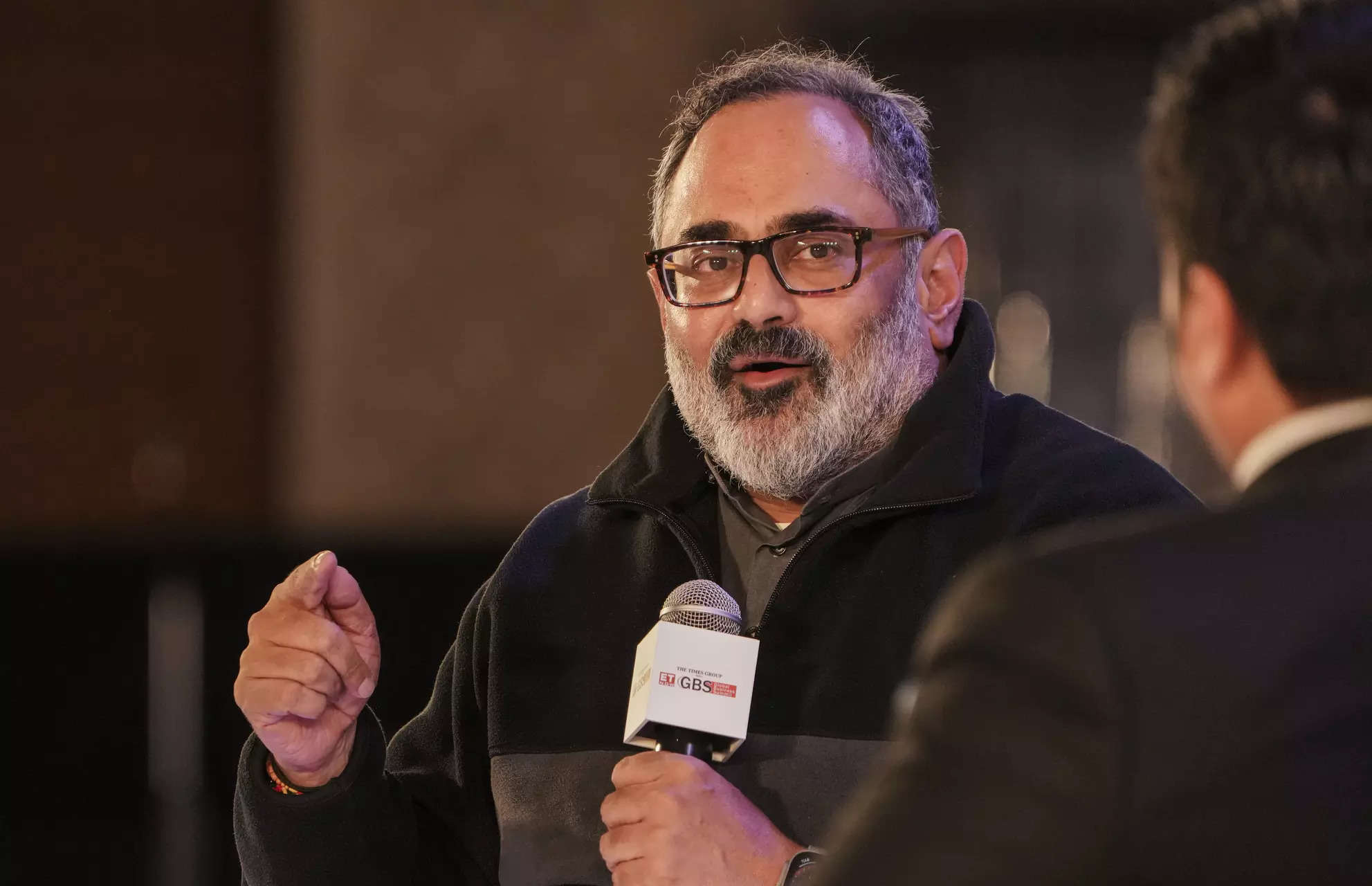Rajeev Chandrasekhar, the Minister of State for IT, recently penned a letter to Finance Minister Nirmala Sitharaman. The letter, written prior to the budget, proposed a reduction in import duty on electronic components to boost the country’s export growth. The confidential letter, reportedly dated January 3, expressed concerns about India falling behind China and Vietnam in smartphone manufacturing due to uncompetitive tariffs.
In an interview to news agency PTI, Chandrasekhar confirmed the letter’s existence. He shared that his perspective was influenced by his former boss and ex-CEO of Intel, Andrew Grove’s book, “Only the Paranoid Survive…”.
“Paranoids survive”
Chandrasekhar stated, “I am a firm believer in paranoia. As a nation, we should never take our leadership position for granted. The letter I wrote to the finance minister was unfortunately misinterpreted by some. In reality, it highlighted the significant opportunity India has to transition from import substitution-led manufacturing to export-led manufacturing.”
He noted that the global electronics supply chain is gradually shifting from being predominantly China-based to exploring more hubs.
PM Modi’s aim is to reach pinnacle of smartphone manufacturing
“India has significantly contributed to this shift over the past five years and will continue to play a major role in the next five to ten years. We were virtually non-existent in electronics manufacturing. To quote Tim Cook, Apple’s CEO, ‘Three years ago, no Apple phones were being manufactured in India. We were importing all mobile phones. Today, we are exporting $10-12 billion worth of Apple and Samsung mobile phones,” said Chandrasekhar.
He acknowledged the growth as remarkable.
“Our Prime Minister’s ambition is to reach the pinnacle. Therefore, any pre-budget statements or budget views aim to build upon our success. Our Prime Minister has a clear vision to achieve USD 300 billion in electronics manufacturing by 2026-27,” Chandrasekhar added.
According to official data, India has now reached a point where 99.2% of mobile handsets used in the country are domestically manufactured, transforming the country from an importer to an exporter in this segment.
Chandrasekhar concluded, “We have a clear vision in the government and the Prime Minister, that we want to be global champions and leaders in smartphones, IT, laptops, servers, and hardware, and play the role of a trusted partner to the GVCs for enterprises, governments, and people worldwide.”
In an interview to news agency PTI, Chandrasekhar confirmed the letter’s existence. He shared that his perspective was influenced by his former boss and ex-CEO of Intel, Andrew Grove’s book, “Only the Paranoid Survive…”.
“Paranoids survive”
Chandrasekhar stated, “I am a firm believer in paranoia. As a nation, we should never take our leadership position for granted. The letter I wrote to the finance minister was unfortunately misinterpreted by some. In reality, it highlighted the significant opportunity India has to transition from import substitution-led manufacturing to export-led manufacturing.”
He noted that the global electronics supply chain is gradually shifting from being predominantly China-based to exploring more hubs.
PM Modi’s aim is to reach pinnacle of smartphone manufacturing
“India has significantly contributed to this shift over the past five years and will continue to play a major role in the next five to ten years. We were virtually non-existent in electronics manufacturing. To quote Tim Cook, Apple’s CEO, ‘Three years ago, no Apple phones were being manufactured in India. We were importing all mobile phones. Today, we are exporting $10-12 billion worth of Apple and Samsung mobile phones,” said Chandrasekhar.
He acknowledged the growth as remarkable.
“Our Prime Minister’s ambition is to reach the pinnacle. Therefore, any pre-budget statements or budget views aim to build upon our success. Our Prime Minister has a clear vision to achieve USD 300 billion in electronics manufacturing by 2026-27,” Chandrasekhar added.
According to official data, India has now reached a point where 99.2% of mobile handsets used in the country are domestically manufactured, transforming the country from an importer to an exporter in this segment.
Chandrasekhar concluded, “We have a clear vision in the government and the Prime Minister, that we want to be global champions and leaders in smartphones, IT, laptops, servers, and hardware, and play the role of a trusted partner to the GVCs for enterprises, governments, and people worldwide.”
Denial of responsibility! Swift Telecast is an automatic aggregator of the all world’s media. In each content, the hyperlink to the primary source is specified. All trademarks belong to their rightful owners, all materials to their authors. If you are the owner of the content and do not want us to publish your materials, please contact us by email – swifttelecast.com. The content will be deleted within 24 hours.


